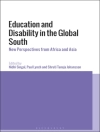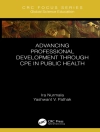China’s Belt and Road Initiative (BRI), commonly called the New Silk Road, is a huge infrastructure project currently revitalising or creating new trading routes and large developments across the globe. It is estimated to cost up to US$8 trillion and impact more than 65% of the world’s population.
This book explores the unequal ways this controversial project is altering livelihoods, places and the environment. From road building projects in Nairobi to grassroots environmental activism in Thailand, researchers from the Global North and South analyse the real-world impacts of this unprecedented project, bringing together critical geography and political ecology approaches.
Inhaltsverzeichnis
Introduction: The World Transformed: Grounding the Belt and Road Initiative – Elia Apostolopoulou, Han Cheng, Jonathan Silver and Alan Wiig
1. The Contested Coal-Fired Power in the Belt and Road Initiative: Indonesia as a Case Study – Bowen Gu
2. Dynamics of Grassroots Collectivism in Thailand’s Special Economic Zones: Cases of Natural Resource Conflicts Within the Belt and Road Initiative – Ratchada Arpornsilp
3. Railways of Hope, Railways of Conflicts: Governance of the Domestic Environmental Impacts of a Belt and Road Project – Xiaofeng Liu
4. A Debt to Whom? The Nature Question in Sino-Sri Lankan Development Narratives – Orlando Woods, Kanchana Ruwanpura, Loritta Chan and Barnabas Mah
5. Waiting, Acceleration, Stabilisation: Unpacking Polychronic Temporalities in the Deployment of a Chinese Green Energy Project in Eastern Germany – Hannes Langguth
6. Silk Road on Ice: Extractivism, Climate Coloniality, and Resistances – Ksenija Hanaček
7. Donor Competition, Local Agency, and Contingency: Jakarta-Bandung High-Speed Railway in Indonesia – Caixia Mao
8. A Postcolonial BRI? Dependency, Development, and Geopolitics in China-Latin America Relations – Simone Vegliò
9. The Elusive Rainbow at the End of the Belt and Road: Chinese Investment, Finance and Trade Controversies in Southern Africa – Patrick Bond
10. Beyond the Logistical Monolith: Multiplicity and Differentiation Along the Adriatic Corridor – Francesca Governa, Leonardo Ramondetti, Astrid Safina, Angelo Sampieri and Alberto Valz Gris
11. Capitalising on the Logistical Future: Discounting Uncertainty in the Georgian BRI – Evelina Gambino
12. Infrastructure-Led Development, Urban Transformation, and Inequality in China’s Belt and Road Initiative: A Marxist Postcolonial Geographies Analysis – Elia Apostolopoulou
Afterword: The Material Futures of the BRI – Elia Apostolopoulou, Han Cheng, Jonathan Silver and Alan Wiig
Über den Autor
Elia Apostolopoulou is Senior Lecturer at Imperial College London and Senior Associate at the University of Cambridge.
Han Cheng is Max Weber Foundation Research Fellow at the Asia Research Institute, National University of Singapore.
Jonathan Silver is Senior Research Fellow at the University of Sheffield.
Alan Wiig is Associate Professor at the University of Florida.












